Have you grown up with a toxic parent/parents, who have always hurt you, belittled you, and never tried to understand you even once? This post is going to discuss in detail toxic parent signs and dealing with toxic parents in adulthood. So, what are the signs of a toxic parent?
Toxic relationships include relationships with toxic parents. Typically, they do not treat their children with respect as individuals.
They won’t compromise, take responsibility for their behavior, or apologize. Often these parents have a mental disorder or have a serious addiction. We all live with the consequences of poor parenting.
However, if our childhoods were traumatic, we carry wounds from abusive or dysfunctional parenting. When they haven’t healed, toxic parents can re-injure us in ways that make growth and recovery difficult.
When we grow up with dysfunctional parenting, we may not recognize it as such. It feels familiar and normal. We may be in denial and not realize that we’ve been abused emotionally, particularly if our material needs were met.
Related: 5 Signs You Are The Child Of A Toxic Parent
Toxic Behavior
Here are some questions to ask yourself about your parents’ behavior. If this conduct is chronic and persistent, it can be toxic to your self-esteem.
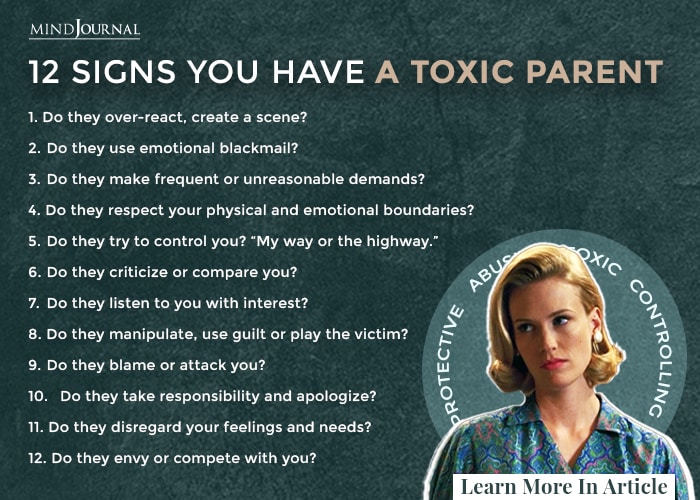
1. Do they over-react, or create a scene?
2. Do they use emotional blackmail?
3. Do they make frequent or unreasonable demands?
4. Do they try to control you? “My way or the highway.”
5. Do they criticize or compare you?
6. Do they listen to you with interest?
7. Do they manipulate, use guilt or play the victim?
8. Do they blame or attack you?
9. Do they take responsibility and apologize?
10. Do they respect your physical and emotional boundaries?
11. Do they disregard your feelings and needs?
12. Do they envy or compete with you?
Detach from Toxic Parents
Detaching is an emotional concept and has nothing to do with physical proximity. It means not reacting, not taking things personally, nor feeling responsible for someone else’s feelings, wants, and needs.
Our parents can easily push our buttons. That’s because they’re the ones that put them there! It’s harder to not react to our parents than to our friends and partners, with whom we’re on more equal footing. Even if you move as far away as you can, emotionally, you may still react and have trouble detaching.
Related: 20 Signs You Are The Child Of a Toxic Parent
Be Assertive and Set Boundaries
Sometimes, it’s impossible to hold on to healthy behavior when we’re around our parents. Our boundaries were learned in our family.
If we don’t go along, our family, especially our parents, may test us. You may have trouble setting new boundaries with your parents. Perhaps, you have a mom who calls every day or a sibling who wants to borrow money or is abusing drugs. Confused, they may attack you or blame your new limits on your partner or therapist.
Relationships with toxic parents can be hard to walk away from.
You may need distance from your parents to create the boundaries that you’re unable to make verbally. Some people are cut off from family for that reason or due to unresolved anger and resentment from childhood.
Cut-offs may be necessary for very abusive environments. However, although they reduce emotional tension, the underlying problems remain and can affect all of your relationships.
Many family therapists suggest that the ideal way to become independent from your family is to work on yourself in therapy, then visit your parents and practice what you’ve learned.
It’s far better for your growth to learn how to respond to abuse. I’ve witnessed clients who felt uncomfortable returning home do this.
They gradually transitioned from reluctantly staying in their parents’ residence during visits, to becoming comfortable declining invitations home, to staying in a hotel or with friends without guilt. Some could eventually stay with their parents and enjoy it.
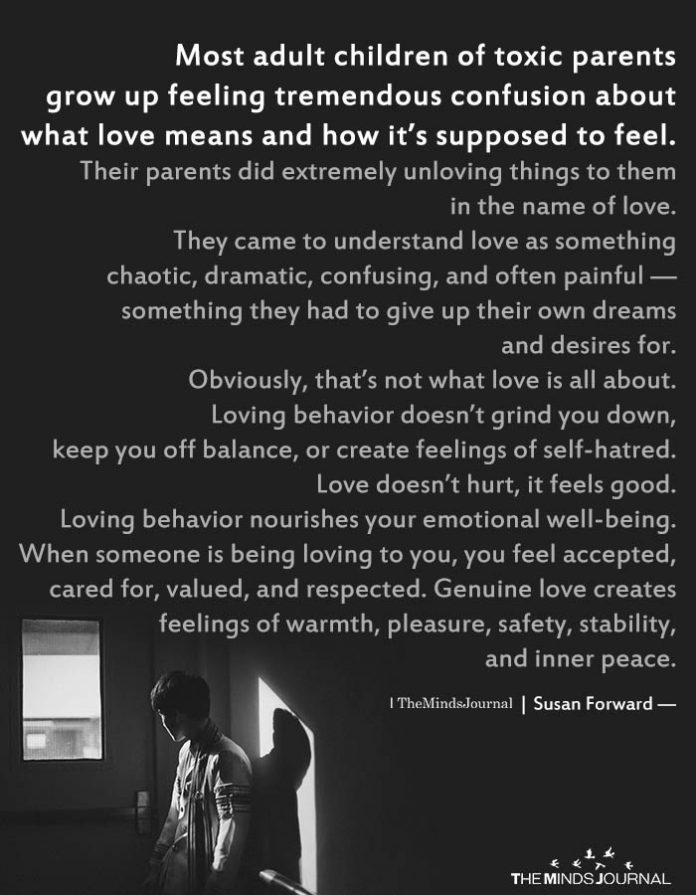
When you visit, pay attention to unspoken rules and the boundary and communication patterns.
Try behaving in a way that’s different from the role you played growing up. Pay attention to the habits and defenses you use to manage anxiety.
Ask yourself, “What am I afraid of?” Remember that although you may feel like a child with your parents, you aren’t one. You’re now a powerful adult. You can leave unlike when you were a child.
Where active drug addiction and abuse are present, consider what boundaries you require in order to feel comfortable. Know your bottom-line. Is it a one-day or one-hour visit or only a short phone call?
Some adult children of addicted parents refuse to talk on the phone or be around them when their parents are drinking or using drugs. You may have siblings who pressure you to rescue a parent, or you may be tempted to do so. With difficult family situations, it’s helpful to talk with a therapist or other people in recovery from codependency.
Related: 13 Signs Of A Toxic Parent That Many People Don’t Realize
Some Truths about Having Toxic Parents
Healing a relationship begins with you — your feelings and attitudes. Sometimes working on yourself is all it takes. That doesn’t imply that your parents will change, but you will. Sometimes forgiveness is necessary or a conversation is required.
Here are some things to think about when it comes to your family:*
1. Your parents don’t have to heal for you to get well.
2. Cut-offs don’t heal.
3. You are not your parents.
4. You’re not the abusive things they say about you either.
5. You don’t have to like your parents, but you might still be attached and love them.
6. Active addiction or abuse by a parent may trigger you. Set boundaries and practice non-attachment.
7. You can’t change or rescue family members.
8. Indifference, not hatred or anger, is the opposite of love.
9. Hating someone interferes with loving yourself.
10. Unresolved anger and resentment hurt you.
What You Can Do?
Start therapy and attend CoDA, ACoA, or Al-Anon meetings. Learn to identify abuse and manipulation. Learn How to Raise Your Self-Esteem and heal shame and childhood trauma.
Related: 10 Do’s and Don’ts To Keep Your Parenting Healthy and Non-Toxic
Have a support network, and become financially independent from your parents. Do the exercises in my ebook, How To Speak Your Mind – Become Assertive and Set Limits, and webinar, How to Be Assertive.
With abusive and difficult parents, my ebook, Dealing with a Narcissist: 8 Steps to Raise Self-Esteem and Set Boundaries with Difficult People lays out particular and specific strategies for confronting bad behavior with highly defensive people.
Want to know more about the signs of a toxic parent and tips for dealing with toxic parents? Check this video out below!
©Darlene Lancer 2018
* Adapted from Codependency for Dummies 2nd Ed. 2014, John Wiley & Sons, Inc.
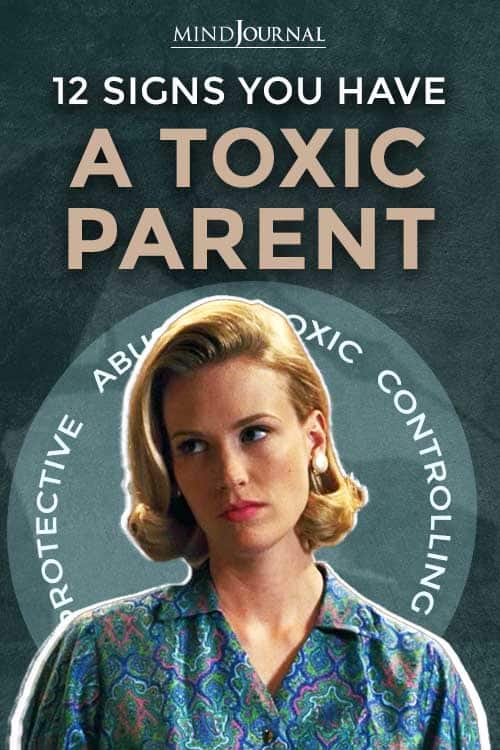
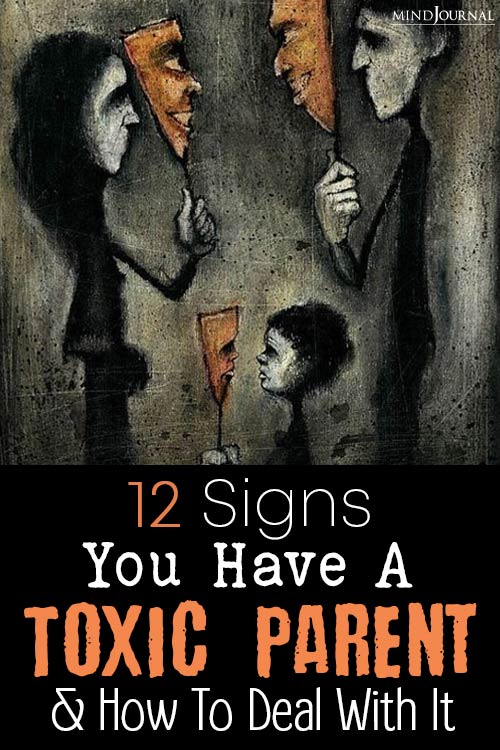
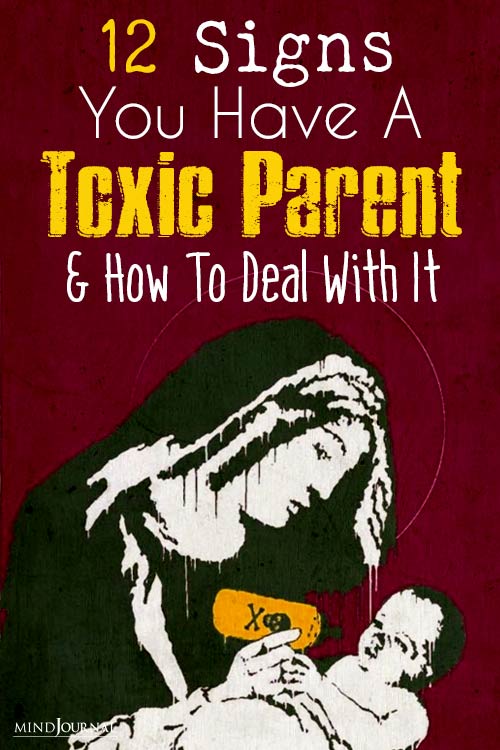
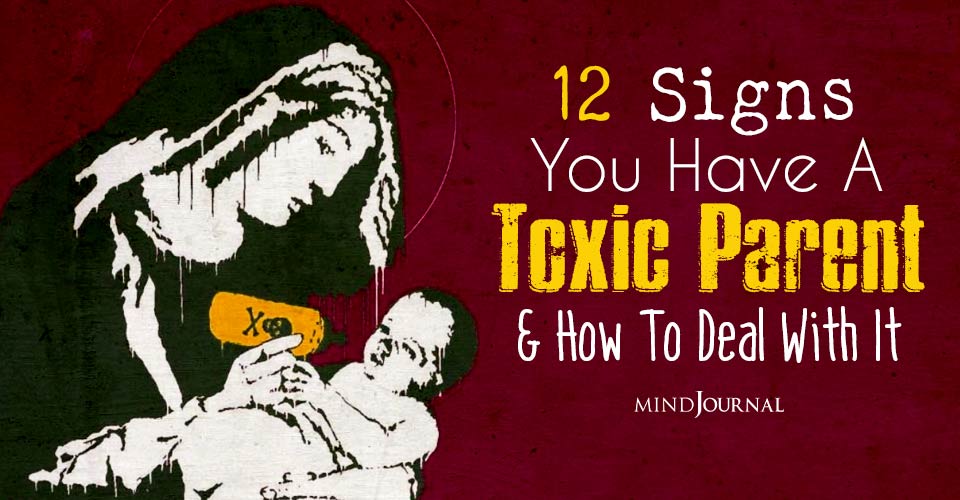







Leave a Reply
You must be logged in to post a comment.